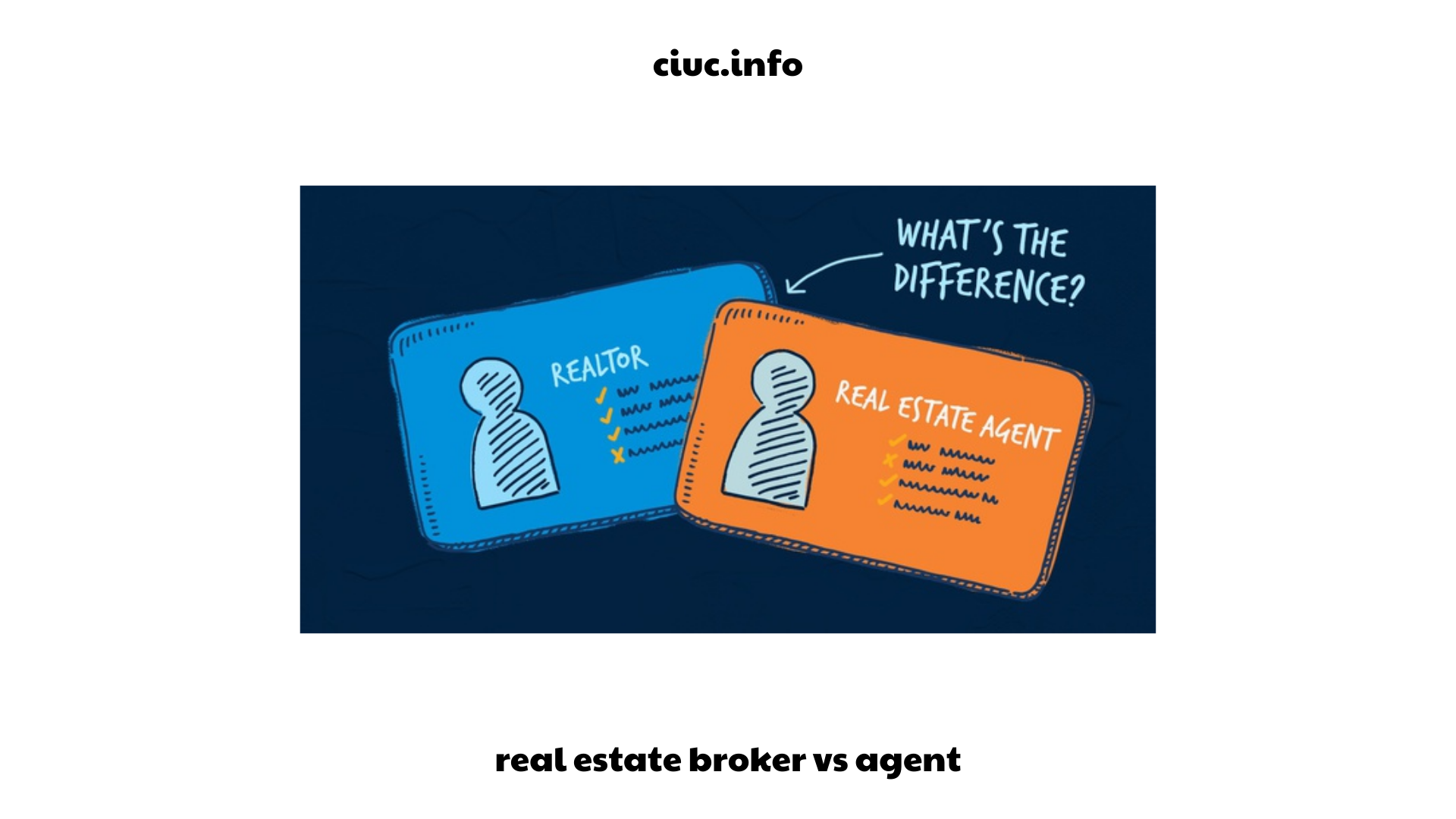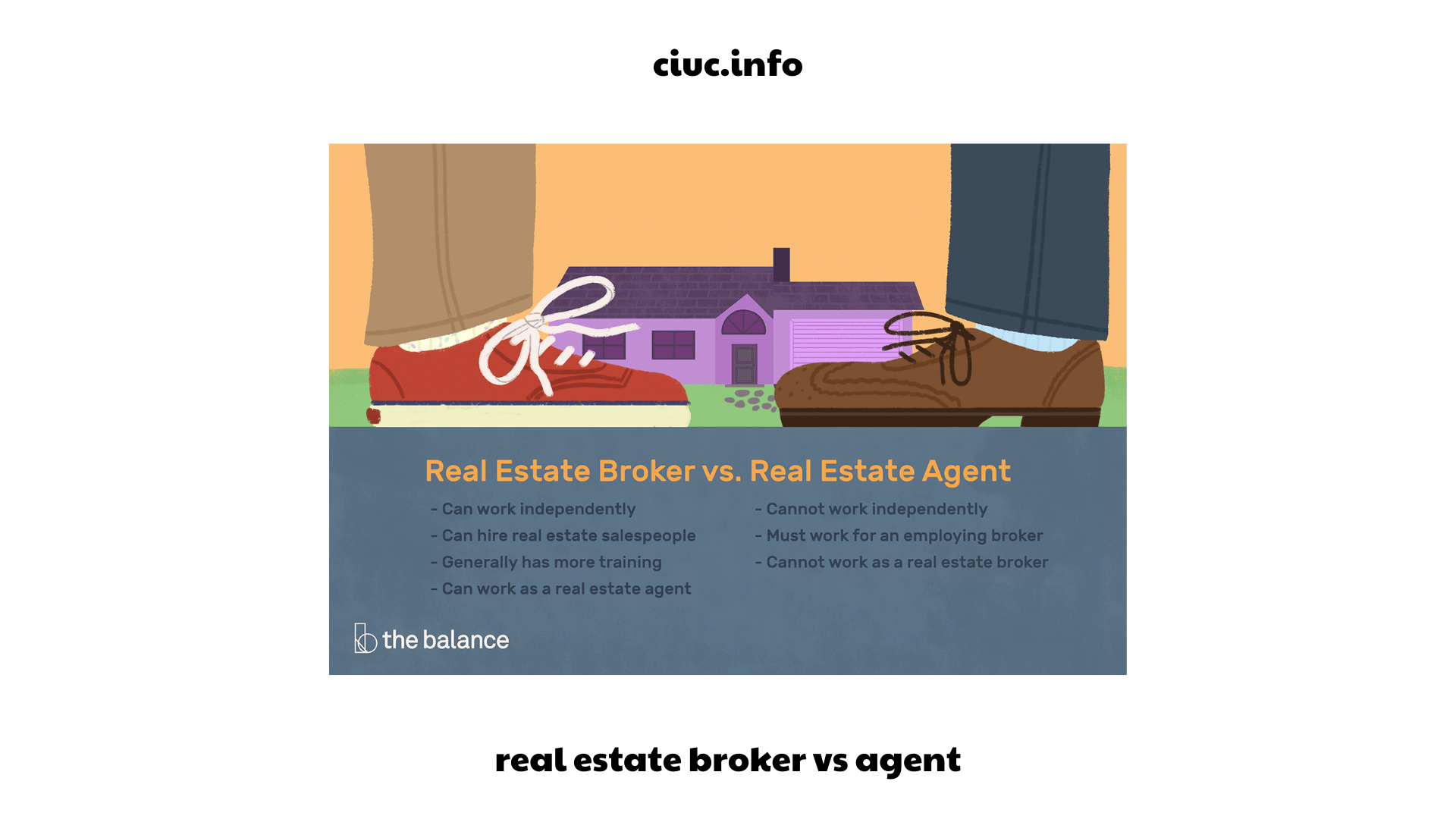When it comes to buying or selling a property, many people rely on the expertise of real estate professionals to guide them through the process. However, the terms “real estate broker” and “real estate agent” are often used interchangeably, leading to confusion about the roles and responsibilities of each. While both brokers and agents are licensed professionals who work in the real estate industry, there are some key differences between the two. In this article, Ciuc will explore and clarify the distinctions between a real estate broker vs agent, helping you understand who to turn to for your specific real estate needs.
Real Estate Broker vs Agent: Understanding the Key Differences

Licensing and Education
One of the primary differences between a real estate broker and an agent lies in their licensing and education requirements. In most jurisdictions, becoming a real real estate broker vs agent completing a certain number of hours of pre-licensing education, passing a licensing exam, and working under a licensed broker. Agents are typically required to renew their licenses periodically and participate in continuing education courses to stay updated on industry regulations and practices.
On the other hand, becoming a real estate broker vs agent usually entails additional requirements. Brokers are required to have more experience in the field, often working as agents for a certain number of years before becoming eligible to apply for a broker’s license. Additionally, brokers are typically required to complete advanced coursework and pass a broker’s licensing exam. These additional requirements reflect the higher level of knowledge and expertise expected from brokers, as they often oversee the work of agents and have more responsibilities in transactions.
Supervision and Responsibility
Another key difference between brokers and agents lies in their level of supervision and responsibility. Real estate agents typically work under the supervision of a licensed broker. This means that agents operate under the broker’s license and are accountable to them for their actions. Agents often work as representatives of the broker’s real estate agency, and any transactions they facilitate are conducted on behalf of the agency.
In contrast, real estate brokers have the authority to operate independently and can work as self-employed professionals or establish their own real estate brokerage. Brokers have the ability to hire and supervise real estate agents, and they are directly responsible for overseeing their agents’ activities and ensuring compliance with applicable laws and regulations. Brokers may also take on more complex transactions and provide guidance and support to their agents when needed.
Scope of Practice
The scope of practice is another area where real estate brokers and agents differ. While both brokers and agents can assist clients in buying, selling, or renting properties, brokers typically have a broader range of services they can provide. Brokers can represent clients in more complex transactions, such as commercial real estate deals or large-scale investment properties. They may also engage in property management, real estate consulting, or real estate development.

Real estate agents, on the other hand, generally focus on residential real estate transactions. They work directly with buyers and sellers to help them find or sell properties, negotiate offers, and navigate the closing process. Agents may specialize in specific areas or property types, such as luxury homes, condominiums, or rental properties. While agents may handle a wide range of transactions, their activities are typically more limited in scope compared to brokers.
Earning Potential and Compensation
The earning potential and compensation structure can also vary between real estate brokers and agents. In general, brokers have the potential to earn higher incomes due to their increased level of responsibility and the ability to oversee multiple agents and transactions. Brokers may earn income from their own real estate transactions, as well as a percentage of the commissions earned by the agents they supervise.
Real estate agents, on the other hand, typically earn a commission on the transactions they facilitate. The commission is a percentage of the property’s sale price and is usually split between the buyer’s agent and the seller’s agent. The exact commission percentage can vary depending on local market conditions and agreements between the parties involved. Agents may also earn additional income through referral fees, bonuses, or incentives offered by their brokerage.
Choosing the Right Professional for Your Needs
When it comes to choosing between a real estate broker and an agent, it’s important to consider your specific real estate needs and goals. If you are looking to buy or sell a residential property and prefer to work with someone who specializes in that area, a real estate agent may be the right choice for you. Agents often have a deep understanding of the local residential market, specific neighborhoods, and current market trends.
On the other hand, if you are dealing with more complex real estate transactions, such as commercial properties or investment properties, or if you require additional services such as property management or real estate development, a real estate broker vs agent may be better suited to meet your needs. Brokers often have a broader knowledge base and can provide more comprehensive assistance in these specialized areas.
It’s also crucial to evaluate the individual’s experience, reputation, and track record when selecting a real estate professional. Whether you choose to work with a broker or an agent, look for someone who has a proven record of success, good communication skills, and a thorough understanding of the local market. Personal recommendations,online reviews, and interviewing potential candidates can help you make an informed decision.

In conclusion, understanding the key differences between a real estate broker and an agent is essential when navigating the real estate market. While both professionals play crucial roles in assisting buyers and sellers, brokers have additional responsibilities and qualifications. Brokers can operate independently, supervise agents, and handle more complex transactions, while agents typically focus on residential real estate. Consider your specific needs and goals when choosing between a broker and an agent, and prioritize experience and reputation in your decision-making process. By understanding these differences between real estate broker vs agent, you can ensure that you have the right professional by your side to guide you through your real estate journey.
